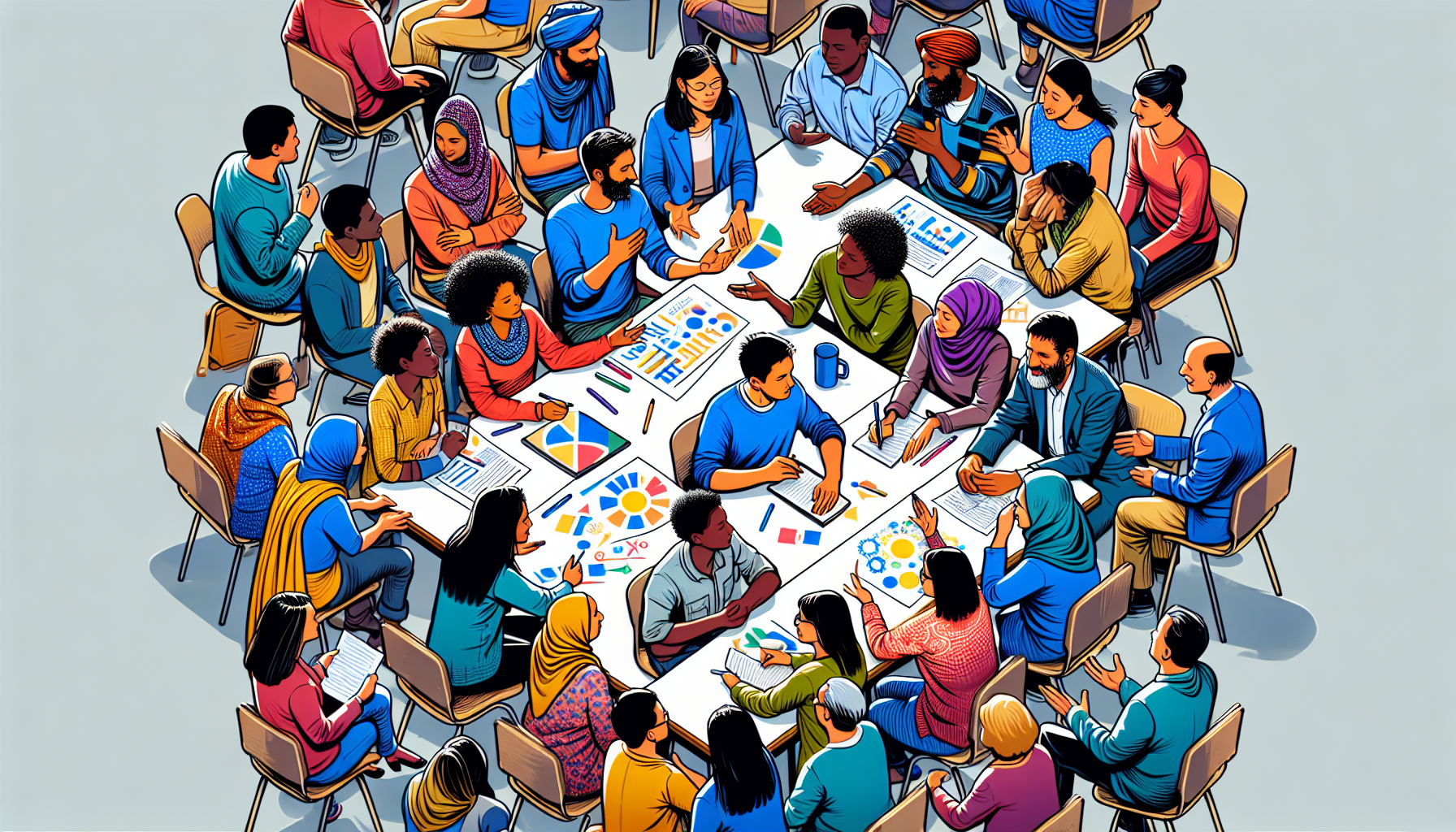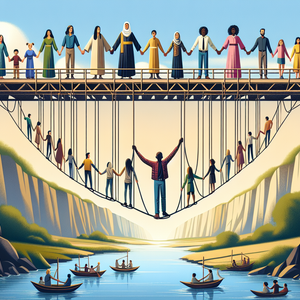Microsoft Careers and Diversity: Building an Inclusive Workforce

Diversity in the workplace encompasses a wide array of factors, including race, gender, age, sexual orientation, disability, and cultural background. Research has consistently shown that diverse teams are more innovative and effective at problem-solving. A landmark report by McKinsey revealed that companies in the top quartile for gender diversity on executive teams are 25% more likely to experience above-average profitability compared to those in the bottom quartile. Microsoft’s understanding of this reality is reflected in its commitment to fostering an inclusive environment, which not only aligns with societal values but also enhances business performance. Diverse teams bring unique perspectives that can lead to more comprehensive solutions and innovative ideas, ultimately helping organizations like Microsoft stay competitive in a rapidly evolving tech landscape.
Microsoft’s Initiatives for Diversity and Inclusion
To foster diversity within its workforce, Microsoft has implemented several noteworthy initiatives. One of the most prominent is its commitment to equitable hiring practices. This includes the use of blind resume reviews, where candidate names and other identifying information are removed to minimize bias. By doing so, Microsoft aims to ensure that candidates are evaluated based solely on their qualifications and experiences, rather than preconceived notions related to their identities. Additionally, Microsoft has established partnerships with organizations that focus on underrepresented groups in tech, such as Black Girls Code and the National Society of Black Engineers. These collaborations create pipelines for diverse talent, ensuring that hiring practices are inclusive and that candidates from all backgrounds have equal opportunities to succeed. Another significant initiative is Microsoft’s focus on employee resource groups (ERGs). These groups provide crucial support and community for underrepresented employees, allowing them to connect, share experiences, and advocate for change within the organization. For instance, the Black Employee Network and the Women at Microsoft group have been instrumental in promoting visibility and support for their respective communities, fostering a sense of belonging that is essential for employee satisfaction and retention.
Success Stories from Diverse Employees
To truly understand the impact of Microsoft’s diversity initiatives, one can look at the success stories of employees from varied backgrounds. Take the example of Sarah, a software engineer who joined Microsoft through a partnership with a local coding bootcamp aimed at women and minorities. Sarah credits her career growth largely to the mentorship programs provided by Microsoft, which paired her with experienced professionals who guided her through the complexities of the tech industry. This mentorship not only helped her develop her technical skills but also empowered her to navigate the often-challenging landscape of technology. Another inspiring story is that of Carlos, a Latino project manager who has been with Microsoft for over five years. Carlos highlights the importance of the company’s commitment to diversity in creating an environment where he feels valued and empowered to share his ideas. He emphasizes that the diverse perspectives within his team lead to more innovative solutions and a more dynamic work environment. Such narratives illustrate that when companies prioritize diversity, they unlock the potential of their workforce and create a culture where creativity thrives.
The Impact on Company Culture and Innovation
Microsoft's focus on diversity and inclusion significantly influences its company culture. By cultivating an environment where all employees feel valued and included, Microsoft encourages open communication and collaboration. This inclusive culture fosters innovation as employees bring their unique perspectives and experiences to the table. Moreover, a diverse workforce enhances Microsoft's ability to serve a global customer base. By employing individuals with varied backgrounds and experiences, Microsoft is better positioned to understand and meet the needs of its diverse customers. This alignment between workforce diversity and customer needs is crucial in the tech industry, where understanding user experience is key to product development. The ability to tap into a wide range of insights allows Microsoft to create solutions that resonate with a broader audience, ultimately driving customer satisfaction and loyalty.
In conclusion, Microsoft's commitment to building an inclusive workforce is not just a moral imperative but a strategic advantage. By implementing equitable hiring practices, fostering employee resource groups, and showcasing the success stories of diverse employees, Microsoft sets a standard for diversity and inclusion in the tech industry. As organizations continue to navigate the challenges of a rapidly changing world, embracing diversity will remain a crucial factor in driving innovation and achieving long-term success. For aspiring tech professionals, Microsoft’s initiatives serve as a beacon of hope and a model for how a company can truly embrace diversity to create a more equitable and innovative workplace. As we move forward, it is clear that diversity is not just beneficial but essential for the growth and success of any organization, particularly in the ever-evolving landscape of technology.
Diversity and Inclusion Program Manager
Microsoft, Google, Salesforce
Core Responsibilities
Develop and implement diversity and inclusion strategies that align with the company’s mission and goals.
Collaborate with HR and leadership to create training programs focused on unconscious bias and inclusive leadership.
Measure and analyze the effectiveness of diversity initiatives through employee surveys and feedback mechanisms.
Required Skills
Strong understanding of diversity metrics and reporting.
Excellent interpersonal and communication skills to engage with diverse teams.
Experience in project management and change management.
User Experience (UX) Researcher
Microsoft, Amazon, Facebook
Core Responsibilities
Conduct research studies and usability testing to gather insights on user behavior, preferences, and experiences.
Collaborate with cross-functional teams to ensure that diverse user perspectives are integrated into product development.
Analyze data and present findings to inform design decisions and strategies.
Required Skills
Proficiency in qualitative and quantitative research methodologies.
Experience with tools such as UserTesting, Optimal Workshop, or similar platforms.
Strong analytical skills and the ability to communicate insights effectively.
Software Engineer - Accessibility Specialist
Microsoft, Apple, Adobe
Core Responsibilities
Design and develop software solutions that prioritize accessibility for users with disabilities.
Conduct accessibility audits and usability testing to ensure compliance with established standards (e.g., WCAG).
Collaborate with product teams to integrate accessibility features into new and existing products.
Required Skills
Proficiency in programming languages such as HTML, CSS, and JavaScript, with a focus on accessible coding practices.
Knowledge of assistive technologies and accessibility tools.
Strong problem-solving skills and attention to detail.
Data Analyst - Diversity Metrics
Microsoft, IBM, Deloitte
Core Responsibilities
Analyze and interpret workforce data to track diversity and inclusion metrics and trends.
Create visualizations and reports to present findings to stakeholders and inform strategic decisions.
Collaborate with HR and Recruiting teams to identify areas for improvement in diversity hiring practices.
Required Skills
Proficiency in data analysis tools such as Excel, SQL, and Tableau.
Strong statistical knowledge and experience in data mining techniques.
Excellent communication skills to convey complex data insights in an understandable manner.
Employee Resource Group (ERG) Coordinator
Microsoft, Cisco, Accenture
Core Responsibilities
Organize events and initiatives that promote engagement and support for specific employee groups within the organization.
Collaborate with leadership to ensure ERG activities align with corporate diversity goals.
Gather feedback from ERG members to assess program effectiveness and areas for growth.
Required Skills
Strong organizational and event planning skills.
Excellent communication and relationship-building abilities.
Experience working with or leading ERG initiatives or similar programs.


